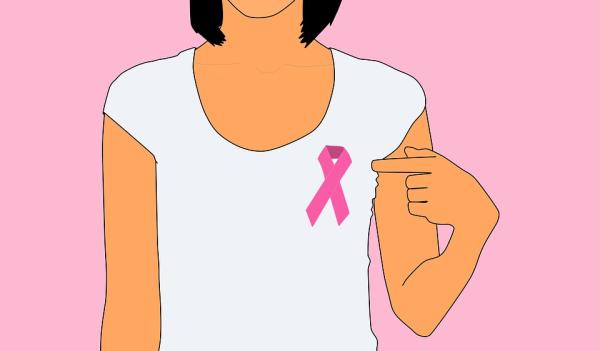Women who are diagnosed with early-stage breast cancer have many decisions to make and the more informed they are about their situation, the better able they'll be to make those decisions. Genetic testing is an important means of accessing information that can impact decisions. For example, discovering that one carries the BRCA1 or BRACA2 mutation, which substantially increases the risk of both ovarian and breast cancer, might induce a woman to have her ovaries removed, as well as a bilateral mastectomy. Not easy decisions by any account, but critical information for a woman and her family to have.
Unfortunately, many women who might benefit from such genetic screening don’t get it, recent research finds. Writing in the Journal of Clinical Oncology, Dr. Steven J. Katz from the University of Michigan and colleagues surveyed over 1700 early-stage breast cancer patients who had indications for formal genetic risk evaluations. Of those, only about 44 percent did so, 31 percent had a discussion with their physician about their genetic risk, and 25 percent had no discussion or counseling at all.
Of the 680 women who were tested, nearly all had had some type of genetic counseling, either via discussions with their doctors or from formal counseling. Thus both types of providers can impact a woman’s decision to obtain testing.
It’s not clear, though, who is the best provider. The American Society of Clinical Oncology doesn’t make a recommendation for who should provide counseling, although their Policy Statement does state:
"The ability to incorporate genetic information, both germline and somatic, into patient care is an important part of oncology practice. Oncologists are optimally positioned to advise patients regarding the management of their primary cancer and the risk of second malignancies and treatment-related cancers."
On the other hand, MedPage Today reports the National Comprehensive Cancer Network recommends that counseling be performed by a genetics expert.
The results of the recent study aren’t surprising since earlier work found somewhat similar results. In that study women who had been diagnosed with early breast cancer, and who were considered at high risk because of family history or age, were surveyed. Over 80 percent of those women said they wanted testing, and about 53 percent actually had tests performed. Of those who didn’t get tested, over half said their doctor “didn’t recommend it.” In addition, only about 40 percent of all high-risk women and about 62 percent of the high risk women who were tested reported having had a genetic counseling session.
These results suggest that some percent of women — even high risk women — are “falling through the cracks” when it comes to appropriate education about their risk for further cancer and possible risks to family members.
Whether the genetic counseling is performed by a specialized genetic counselor or the patient’s primary physician or oncologist, a patient should be given all appropriate information about her condition and its possible ramifications. Any woman with an early-stage breast cancer diagnosis, especially those at a greater than average risk (e.g. those with a family history, under 50 years old) should be aware that genetic counseling could be a valuable adjunct to her treatment options and should ask for it if it isn’t offered.




